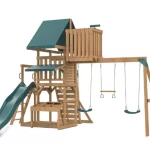What is WIWO in Business Sales?

What is WIWO in a Business Sale
If a business is being sold as "walk in walk out," you will see the abbreviation WIWO on the advertisement. When evaluating a business for sale, it's important to understand this terminology and how it could impact your decision to buy. A WIWO sale may require extra precautions during the due diligence process.
What does WIWO mean?
‘Walk in, Walk Out’ means the buyer will finalise the business sale and handover will occur. Basically, the new owner will walk in, and the old owner will walk out, hence the term.
It's a bit like buying a house at an auction, where you are accepting the business in its current state. As the buyer, you can take over the business immediately and typically, there are no additional costs for fixtures, fittings, or stock – everything needed to run the business is included in the sale price.
Examples of a WWIO sale that have been advertised on Bsale:
- Cafe: Currently a cafe being sold WIWO that includes; coffee machines, tables, chairs, equipment and any produce such as coffee beans.
- Butcher: "Family owned and operated since 2016 – WIWO – Not a cent to spend" WIWO Butcher in Greenacre NSW. Includes: Long list of equipment, including 2 new cold display fridges, large walk in cool room, sausage machine, band saw, mix mincer, freezers....
- Beauty Salon: Fitout replacement cost of over $200,000. Salon features include: 8 cutting stations, Blow dry bar, 3 seat hair wash and more.
With a WIWO sale, there is no stocktake and everything is included in the sale as is. Depending on the business, you may receive a full list of inclusions, or it may be more vague, which can get risky for the buyer, but it really depends on the type of business that is being sold.
What are the Benefits of a WIWO Agreement?
WIWO can be beneficial for both the buyer and seller because it allows a quick transition.
There is no time-consuming stocktakes, or evaluation of exact costs of equipment or fixtures. The owner determines how much he/she would like to receive for the business sale, any stock or equipment, and that is the price he/she sells it for. This can benefit both the buyer and the seller. A valuation of the equipment may be performed if the business is holding high-ticket items such as vehicles.
When selling a business that has very little stock and equipment a WIWO sale may be preferrable. For example, if the seller is holding $10,000 worth of stock and has $20,000 worth of equipment, they may just want $25,000 to cover these and will factor that into their sale price, so the business may be advertised for $200,000 WIWO as opposed to $170,000 + SAV. It can make the transition faster and easier.
A major benefit for buyers purchasing a business on a WIWO basis is evident in industries with high fit-out costs, such as retail stores and beauty salons. These businesses often invest significant amounts in setting up the store. When sold as WIWO, the sale price is typically well below the original fit-out costs, making it an excellent opportunity for someone looking to enter the industry at a lower cost.
What Type of Business Sales are Suitable for a WIWO Agreement?
As mentioned above a WIWO is about a quick transition or when a stocktake is either difficult or not necessary. The types of business sales suitable for a WIWO agreement include:
- Service based operations that have very little stock or equipment
- Organisations that have been established for a long time and have too much stock and equipment to properly value, such as a 30 year old country motel for sale.
- Smaller Opportunities that hold very little long-term stock such as a florist for sale.
- Food-related shops that have usually paid off their equipment and have very little stock.
There are a number of Government resources available to assist you in the process of buying a business.
What are the Risks of WIWO Business Sales?
There are a few risks associated with a WIWO business sales including:
- The Asking Price isn’t Accurate.
- If the opportunity is holding large amounts of stock that is difficult to sell or the machinery is on its last days and in need of repairs, you may be over paying. When you look at a business sales the expectation is that you can continue to run that organisation and increase sales. If your WIWO sale is overpriced and includes undesirable items, it may not be the best option.
- If the opportunity is holding large amounts of stock that is difficult to sell or the machinery is on its last days and in need of repairs, you may be over paying. When you look at a business sales the expectation is that you can continue to run that organisation and increase sales. If your WIWO sale is overpriced and includes undesirable items, it may not be the best option.
- Unclear List of What is Included.
- When you visit the premises you may see equipment that you think will be included in the business sale. Upon taking over you may notice items are missing. An issue with a WIWO sale is that it may not document every item that is included. It is a good idea to have major items included in the contract of sale.
- When you visit the premises you may see equipment that you think will be included in the business sale. Upon taking over you may notice items are missing. An issue with a WIWO sale is that it may not document every item that is included. It is a good idea to have major items included in the contract of sale.
- Outstanding Liabilities
- As with all business sales, proper due diligence should be performed. Sometimes a buyer can get swept up in a WIWO sale thinking it's all clear cut and easy to just walk into the organisation and start running it. But it is important to check all of the debts and liabilities that are owing. For example, when you buy a company you are liable for the debts it owes and contracts it has signed.
So Is Buying a WIWO business a good idea?
Depending on the type of business sale, a WIWO can be a great option for a quick seamless sale.
If a business has a lot of stock and equipment you would not expect to have a WIWO agreement such as a supermarket or a transport company. As the cost of products and equipment on hand can vary in the $1,000s. As always its important to be analytical and always obtain professional advice when buying a business.
Its also important to consider any Tax Obligations that will occur when selling a WIWO business.
So evaluate what is included, so you are educated and can make decisions that will benefit you and don’t get caught up in the ‘it’s a WIWO sale, that’s easy’ mentality.
As with all major decisions, one size does not fit all. Do your research, get professional advice and make sure you know what is included in the business sale.
Originally Published: May 23, 2017
Updated: May 24 1st, 2024
Tags: wiwo buying a business buy a business coaching
About the author

Vanessa Lovie
CEO Bsale Australia
Vanessa is the current manager and CEO of Bsale Australia. Over the past 11 years as a business owner, she understands what it takes to grow a ...






